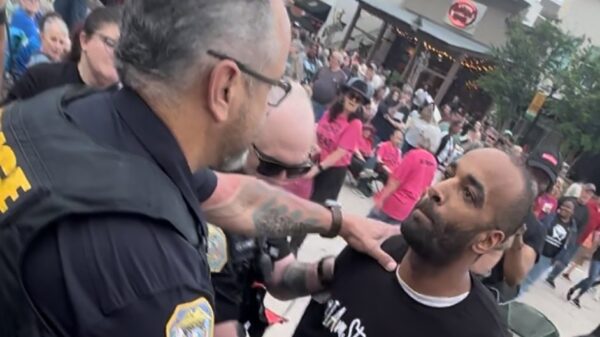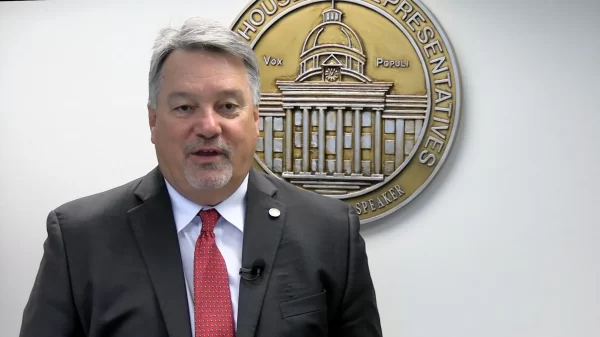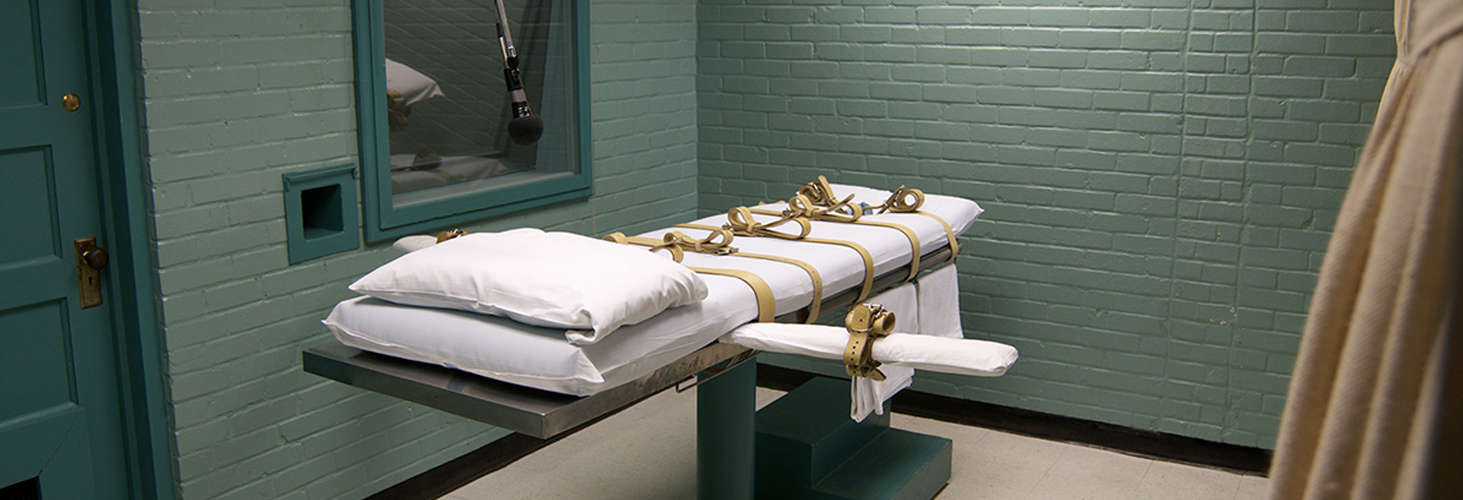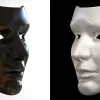By Chip Brownlee
Alabama Political Reporter
MONTGOMERY—Thomas Arthur has escaped death for the seventh time.
US Supreme Court Chief Justice John Roberts issued a stay from the Court late Thursday evening delaying Arthur’s scheduled Nov. 3 execution. The Court’s stay marks the seventh time 74-year-old death row inmate Arthur has avoided an impending execution date.
Attorneys for Arthur filed briefs before the Court Thursday.
One of the petitions asked the Court to review Arthur’s request for an alternative form of execution beside lethal injection, because Arthur believes Alabama’s three-drug lethal injection regimen would be cruel and unusual.
The second asked the Court to review Alabama’s death penalty sentencing laws, which Arthur argues are unconstitutional based on the Supreme Court’s January decision in Hurst v. Florida, which overturned the Sunshine State’s sentencing laws.
The US Supreme Court ruled Florida’s former sentencing laws, which allowed trial court judges to overrule the decision of a jury in a death penalty case, were unconstitutional.
Alabama is now the last state with judicial override for the death penalty. And since 1976, more than 92 percent of 107 overrides have resulted in a judge imposing the death penalty when a trial jury voted against recommending the death penalty, according to Montgomery’s Equal Justice Initiative.
Arthur’s case would not usually warrant a stay, Chief Justice Roberts said in the order, but he agreed to vote for the stay because he wanted the other justices of the court to have time to review the case.
Associate Justice Samuel Alito voted against granting the stay, along with Associate Justice Clarence Thomas — who granted a temporary stay earlier in the evening before Arthur’s 6 p.m. scheduled execution.
Arthur’s stay will terminate when the court decides on the two petitions for writs of certiorari, which ask the Court to review the constitutionality of Arthur’s case. If the Court denies the petitions for writs of certiorari, deciding not to take up Arthur’s case, the stay on his execution would terminate.
If the Court decides to review the case, which Roberts in his order hinted was unlikely, the stay would be extended until the Court hands down a final ruling on his appeals.
If the stay is terminated by the Court’s refusal to take up his case or the Court affirms the previous decisions of lower courts, which have all gone against Arthur, Arthur’s execution will be rescheduled by the Alabama Supreme Court.
The Alabama Supreme Court has set seven different execution dates since Arthur was first convicted of the 1982 murder-for-hire of Muscle Shoals businessman Troy Wicker, and he outlived them all.
Roberts said he believed the case does not warrant the US Supreme Court’s review, writing: “The claims set out in the application are purely fact-specific, dependent on contested interpretations of state law, insulated from our review by alternative holdings below, or some combination of the three.”
The Supreme Court has not yet issued a decision on whether to review Arthur’s challenge, which originates from an appeal in a US District Court in Alabama that was denied and later appealed to the US 11th Circuit Court of Appeals.
In his appeal in the US District Court based on a 2014 US Supreme Court Decision in Glossip v. Gross, Arthur suggested a firing squad or another lethal execution drug, Pentobarbital, as alternatives to the state’s controversial three-drug regimen.
Arthur’s attorneys argued that Midazolam, the first of three drugs in Alabama’s cocktail, would fail to do its job of sedating the inmate to prevent pain during the induction of the two other live-taking drugs, violating the Eight Amendment’s prohibition on cruel and unusual punishment.
In Glossip v. Gross, the US Supreme Court ruled 5–4 that the use of Midazolam as a sedative was not unconstitutional, allowing its use to continue, but Arthur argues that his preexisting heart condition would render Midazolam ineffective.
The federal judge hearing Arthur’s case in US District Court rejected Arthur’s argument because he said Arthur had not identified an alternative drug regimen and a firing squad isn’t a prescribed form of execution under current Alabama law.
In October, four medical ethicists from Harvard College provided testimony to the US Court of Appeals in Arthur’s defense, arguing that only a doctor could prescribe an alternative but doctors are prohibited from taking part in executions by the Hippocratic Oath.
The Court of Appeals denied Arthur’s stay for execution and upheld the US District Courts ruling against Arthur, which prompted Arthur to look to the US Supreme Court for reprieve.
Now, Arthur will wait as the US Supreme Court looks over the submitted briefs in his case and decides whether they will grant review, which the chief justice has hinted would be unlikely.















































